Latest DePIN News
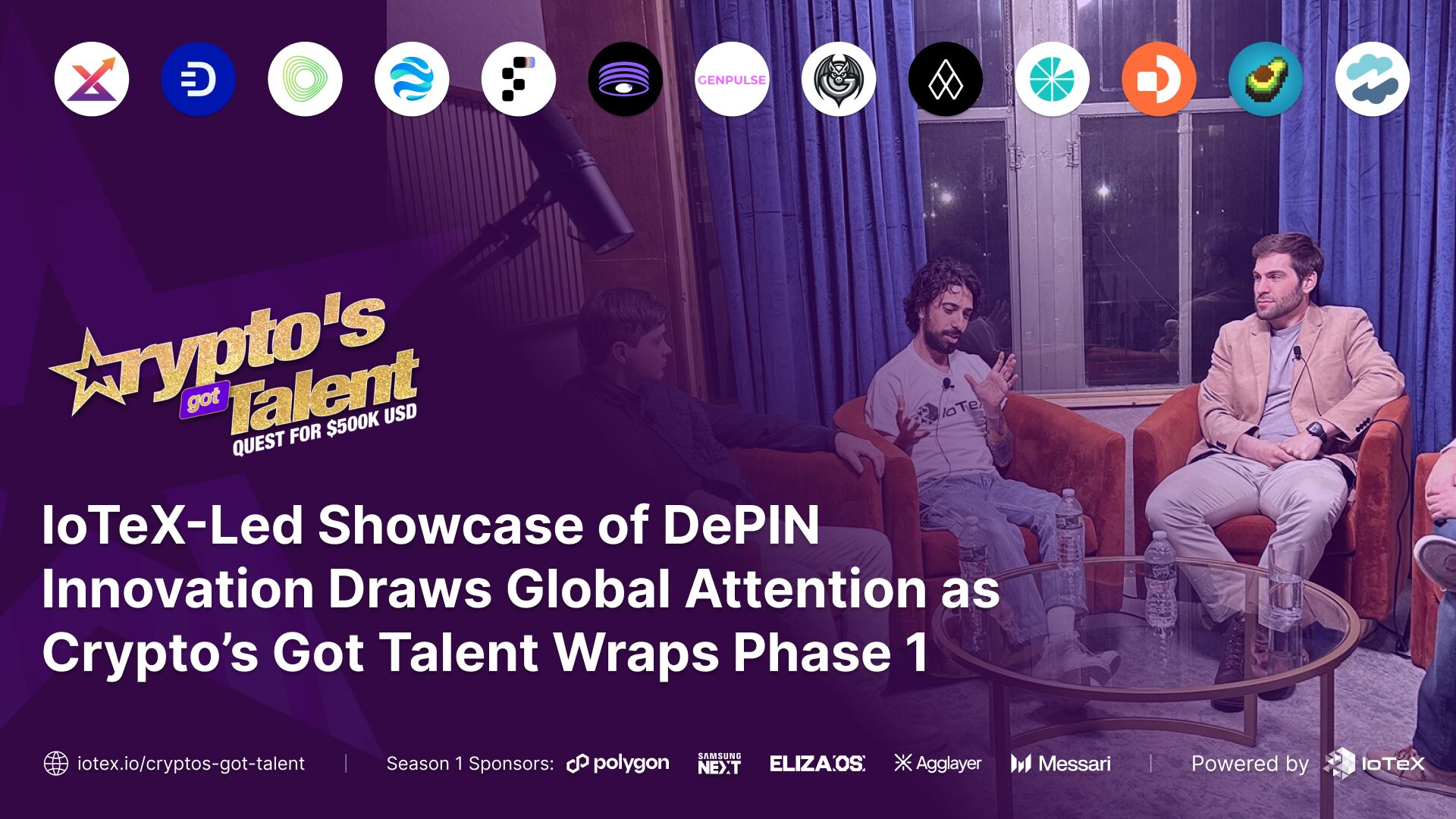
a day ago
Crypto’s Got Talent Concludes Phase 1, Showcasing DePIN Innovations
On April 30, 2025, Crypto’s Got Talent (CGT) concluded its first phase, showcasing a groundbreaking live talent show dedicated to the Decentralized Physical Infrastructure Networks (DePIN) movement. Powered by IoTeX in partnership with Polygon Labs and ElizaOS, CGT has redefined the traditional grant process by offering enhanced visibility, transparency, and community engagement. The event garnered significant attention, with over 190,000 impressions and 40,000 live views per episode, culminating in nearly 3,000 community votes. Eleven exceptional projects have progressed to Phase 2, where they will present detailed demos for a chance to secure a $500,000 grant.
CGT is not merely a talent show; it serves as a global launchpad for innovators and creators. Jing Sun, Co-Founder of IoTeX, emphasized the importance of this platform, stating that it connects real-world problems with innovative solutions. The semi-finalists, including Nubila, DeCharge, and JamGalaxy, were evaluated by prominent figures in the Web3 ecosystem, such as venture capitalists and DePIN experts. Giuseppe De Luca, Head of Developer Relations at IoTeX, highlighted the significance of developers in the Web3 landscape, noting that CGT provides them with a vital platform to transform their ideas into impactful movements.
As Phase 2 approaches, live-streamed demos and in-depth Q&A sessions will allow semifinalists to showcase their projects' market fit and deployment strategies. Evaluations will focus on technical feasibility and real-world adoption potential, with input from both community members and industry leaders. With support from notable organizations like Messari and Samsung Next, CGT is poised to become a premier stage for emerging DePIN startups, fostering innovation and collaboration in the blockchain space.
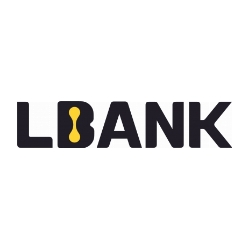
a day ago
LBank Lists Phoenix (PXT): Bridging AI and Decentralized Infrastructure
On April 24, 2025, LBank Exchange announced the listing of Phoenix (PXT), a new digital asset designed to bridge the gap between Artificial Intelligence (AI) and decentralized physical infrastructure networks (DePIN). The PXT/USDT trading pair is now available, marking a significant step in the evolution of Web3. Phoenix aims to provide a modular and scalable framework for developing AI agents and intelligent applications directly on the blockchain, enhancing user interaction with digital assets and decentralized governance.
Phoenix's ecosystem is built on the principles of composability and accessibility, allowing developers and users to create autonomous agents and decentralized applications with minimal technical barriers. The integration of AI with DePIN transforms decentralized networks into programmable economies, enabling AI agents to engage in value creation and resource coordination autonomously. This innovative approach addresses critical limitations in the current Web3 landscape, such as cross-chain interoperability and the complexity of onboarding non-technical users, while enhancing the real-world utility of decentralized systems.
The native utility token, PXT, plays a vital role in the Phoenix ecosystem, facilitating economic interactions and incentivizing participation among developers, agents, and users. With a total supply of 21 billion PXT tokens, the distribution includes community incentives, ecological development funds, and allocations for team support and strategic partners. This tokenomics model not only fuels transactions and dApp operations but also fosters a sustainable DePIN economy, allowing for staking and cross-chain economic activities. Phoenix is poised to drive the next wave of adoption at the intersection of AI, DeFi, and digital infrastructure.
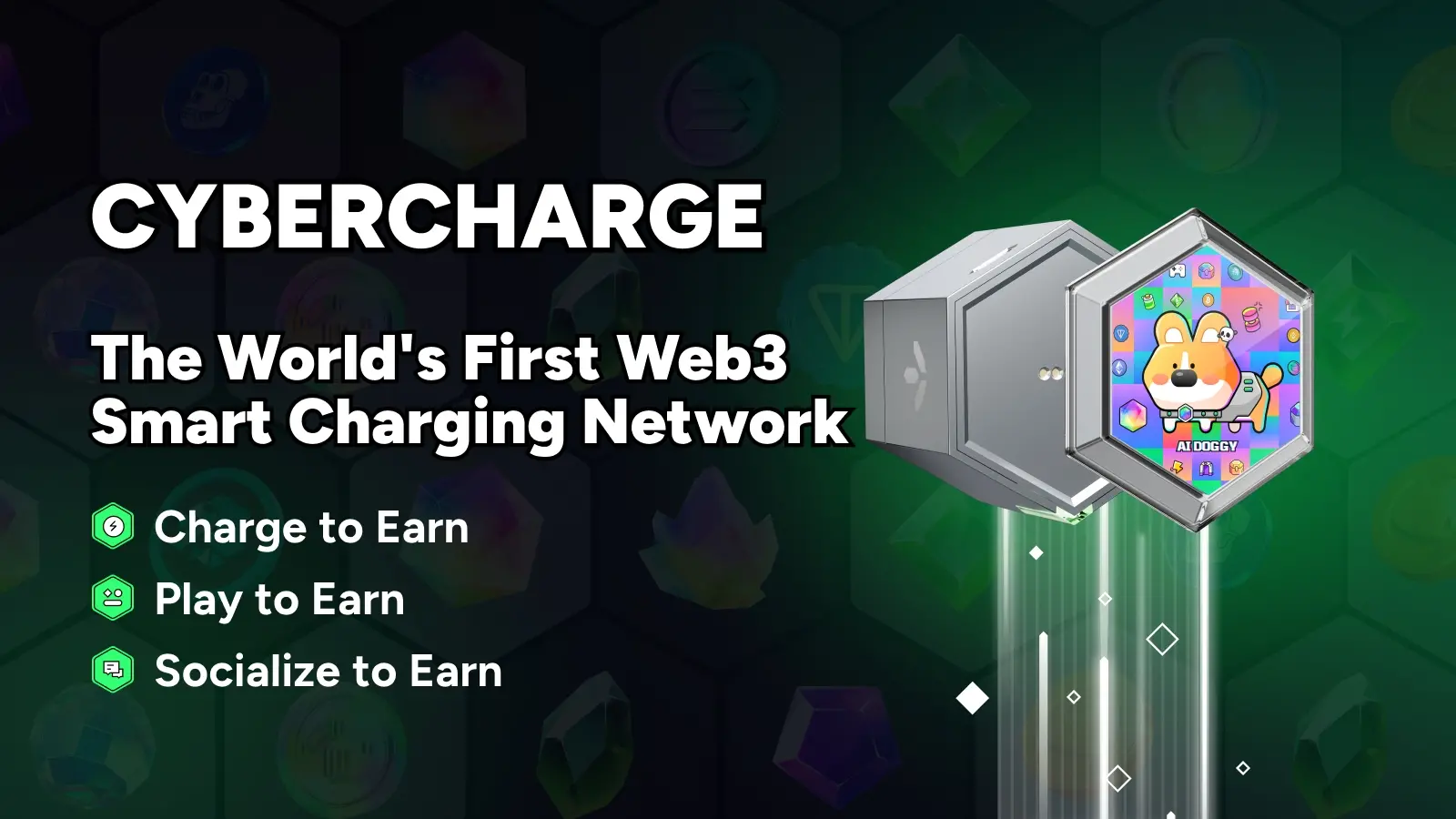
a day ago
The Rise of DePIN: Innovations and Challenges in 2024
In 2024, the DePIN sector is witnessing a significant surge in interest, as highlighted by Messari's State of DePIN 2024 report. Over 13 million devices are actively participating in various DePIN networks daily, with the total market capitalization of related tokens exceeding $50 billion. Despite this growth, the sector's current scale is modest compared to its potential trillion-dollar market. The report notes that 20 DePIN projects have surpassed 100,000 active nodes, with five exceeding one million. However, these projects face ongoing challenges in demand generation and monetization, which are critical for sustainable growth.
Helium, a pioneer in the DePIN space, continues to enhance its network through upgrades and expansions. Following its migration to the Solana chain, Helium saw a rise in IoT hotspots to 32,900 and 5G mobile hotspots to 24,800 by Q4 2024. The partnership with traditional telecom operators has significantly improved network utilization, with Helium offloading over 576 TB of data traffic, marking a 555% increase quarter-over-quarter. Despite these advancements, the DePIN sector struggles with high hardware costs, cold start challenges, node quality issues, and inadequate Sybil resistance mechanisms, which hinder its overall market performance.
Emerging projects like CyberCharge are exploring innovative solutions to address these challenges by lowering barriers to entry. CyberCharge has introduced a decentralized charging network with a Charge-to-Earn model, allowing users to earn crypto rewards through everyday charging activities. This approach not only makes participation accessible but also enhances user engagement through interactive features. As the DePIN sector evolves, the focus on real-world applications and sustainable business models will be crucial for attracting users and fostering long-term demand. The future of DePIN looks promising, with the potential for significant growth as it integrates blockchain technology into everyday infrastructure.

2 days ago
DePIN: A Decentralized Solution for Internet Connectivity During Power Outages
In recent times, millions have experienced power outages and internet disruptions, prompting a critical question: How can we maintain internet connectivity during such crises? The answer may lie in Decentralized Physical Infrastructure Networks (DePIN), which leverage blockchain technology to create community-owned systems that provide essential services like wireless internet, energy, and storage. Unlike traditional networks that rely on centralized servers, DePIN distributes responsibility across numerous independent nodes, enhancing resilience and reducing the risk of total system failure during outages.
DePIN is gaining traction as a viable alternative to conventional infrastructure, especially highlighted by events such as the 2021 Texas winter blackout, where decentralized solutions helped maintain connectivity in some areas. In 2024 alone, investments in DePIN projects exceeded $850 million, indicating a growing recognition of their importance beyond mere connectivity. Projects like Helium, which utilizes user-operated hotspots, and others such as WiFi Map and Nodle are at the forefront of this movement, ensuring that networks remain operational even when traditional power lines fail.
The momentum behind DePIN is accelerating, with leading networks experiencing steady growth and approaching all-time highs. These systems are designed to operate on low energy and can utilize alternative power sources, making them particularly effective in power-starved environments. When combined with satellite solutions like Starlink, DePIN has the potential to keep entire communities connected, even in the darkest of times. As the demand for decentralized infrastructure continues to rise, it is clear that DePIN is not just a passing trend but a necessary evolution in how we approach connectivity and energy distribution in our increasingly digital world.
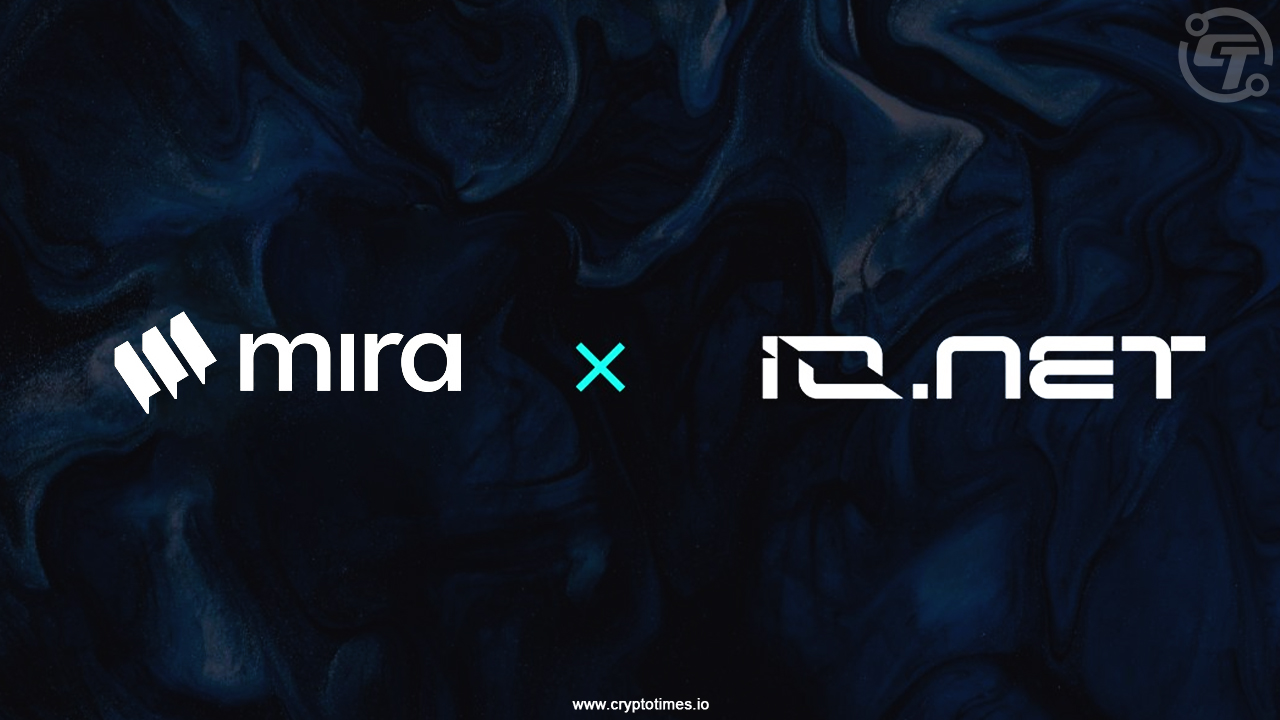
2 days ago
io.net and Mira Network Forge Partnership to Enhance AI Reliability
In a significant development for the decentralized AI landscape, io.net, a DePIN for GPU compute, has announced a strategic partnership with Mira Network. This collaboration is set to tackle the pressing challenges of AI accuracy and reliability, aiming to create scalable and decentralized solutions for advanced AI applications. By leveraging io.net's decentralized GPU infrastructure, Mira Network intends to enhance its operations while simultaneously reducing costs and latency, thus paving the way for more efficient AI implementations.
A key component of this partnership is the support for Mira Network's Node Delegator Program, which allows contributors to delegate GPU resources. This initiative lowers the technical barriers for individuals and organizations eager to engage in the decentralized AI ecosystem, enabling them to support Mira's consensus operations while earning network rewards. As AI technology continues to evolve, the partnership seeks to ensure that AI can deliver consistent, reliable, and unbiased insights, a sentiment echoed by Tausif Ahmed, Chief Business Development Officer at io.net.
The urgency of addressing AI's accuracy challenges is underscored by the current error rates that can reach up to 30% in tasks requiring advanced reasoning. Mira Network aims to mitigate this issue through innovative developments that evaluate AI-generated outputs across various models. Their new integrations have reportedly reduced first-pass mistakes to below 5%, with aspirations to achieve error rates of less than 0.1% through ongoing research. Stone Gettings, Head of Growth at Mira Network, emphasizes that the partnership with io.net will be crucial in further decentralizing their network and providing users with access to reliable GPU resources, thereby accelerating AI adoption in various sectors.

2 days ago
ROVR Network Secures $2.6 Million Funding and Prepares for $ROVR Token Launch
ROVR Network, a pioneering platform in decentralized high-definition 3D mapping, has successfully closed a $2.6 million seed funding round. This funding was co-led by Borderless Capital and GEODNET, with contributions from various angel investors and IoTeX. ROVR, which stands for Robotically Operated Vehicle Research, aims to create the world's first decentralized 3D mapping protocol, providing real-time, regulatory-compliant geospatial data tailored for the autonomous vehicle industry and Spatial AI research. The funds will be utilized to enhance global operations, deploy hardware, and facilitate community-driven data collection.
The ROVR platform is recognized as the first Decentralized Physical Infrastructure Network (DePIN) that integrates LiDAR technology with Real-Time Kinematic (RTK) positioning, achieving centimeter-level accuracy in street-level mapping. This innovative approach offers a scalable, open-source alternative to traditional proprietary HD maps utilized in self-driving vehicles. Alvaro Gracia from Borderless Capital emphasized the significance of ROVR's mapping capabilities, stating that it fulfills a crucial need for automakers in developing driverless systems.
In addition to its funding success, ROVR has expanded its team across North America, Asia, and Europe, and has established a new office in Silicon Valley to enhance partnership development and operational efficiency. The company is also set to launch its $ROVR Token Generation Event (TGE) earlier than planned, with the token now live on the Solana blockchain. This token will play a vital role in incentivizing contributors and facilitating a decentralized data economy, with a deflationary model that includes a burn mechanism linked to data sales, thereby reducing the supply of ROVR and GEOD tokens as ecosystem activity increases.
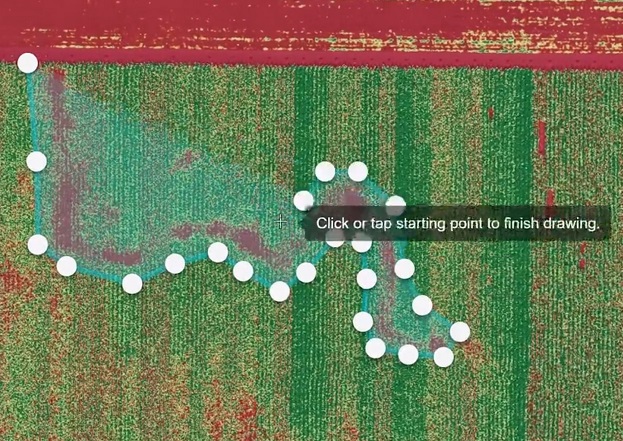
2 days ago
DroneDeploy Partners with GEODNET for Enhanced RTK Network Access
DroneDeploy, a leading company in aerial and ground reality capture, has announced a strategic partnership with the GEODNET Foundation, which operates a global real-time kinematics (RTK) network. This collaboration will provide DroneDeploy customers with access to all 10,000 registered stations within the GEODNET network. This access is particularly beneficial for precise drone surveying, underground utility documentation, and applications in construction, mining, energy, and utilities sectors. Furthermore, DroneDeploy plans to collaborate with its customers to establish GEODNET stations in regions that currently lack coverage, enhancing the network's reach and utility.
James Pipe, Chief Product Officer at DroneDeploy, emphasized the importance of this partnership, stating that while today's affordable enterprise drones are capable of sophisticated RTK and PPP survey-grade workflows, the high cost of accessing RTK base-station data has been a significant barrier. The integration with GEODNET aims to eliminate this hurdle, allowing users to fully leverage the advanced capabilities of their drones. The partnership is expected to enhance operational efficiency and accuracy in various applications, making it a significant step forward for both companies.
The GEODNET Foundation operates using decentralized physical infrastructure networks (DePIN) principles, which allows for a low-data rate network connection. This technology enables a remarkable 100-times improvement in positioning accuracy compared to traditional standalone GPS systems. Mike Horton, Project Creator at GEODNET, expressed pride in being selected by DroneDeploy for this integration, highlighting the potential for improved workflows and enhanced data accuracy in the industry. This partnership marks a significant advancement in the use of drone technology and RTK networks, paving the way for more precise and efficient operations in various sectors.
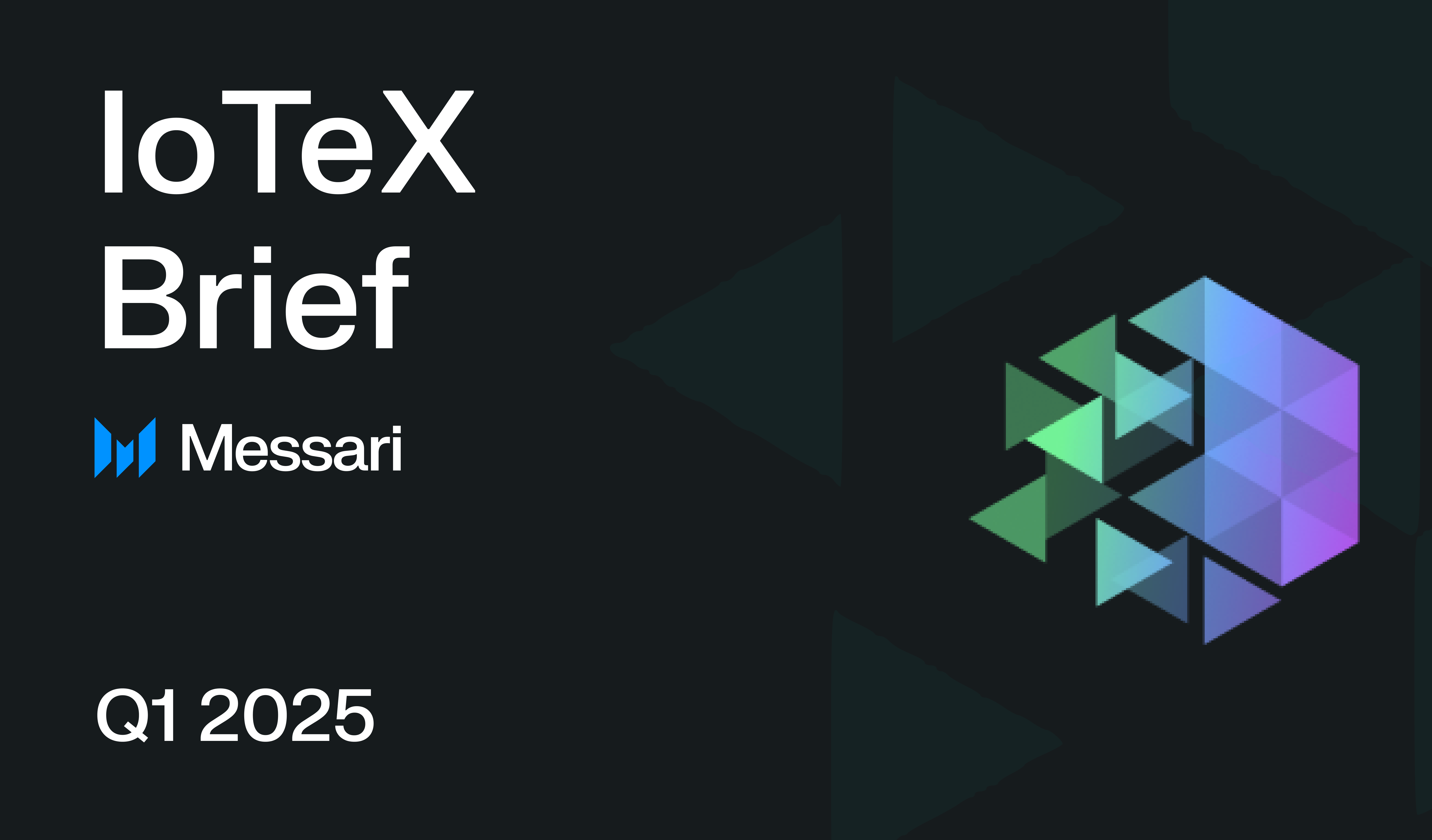
3 days ago
IoTeX Launches Quicksilver and Expands DePIN Ecosystem in Q1 2025
In the first quarter of 2025, IoTeX made significant strides with the introduction of Quicksilver, a decentralized physical infrastructure network (DePIN) module that enables AI agents to interact with real-world data. This innovative framework aims to enhance the capabilities of AI by allowing it to process real-time data and respond adaptively to its environment. Partnerships with GEODNET and Nubila have been established to integrate their devices with the ioID module, facilitating machine verifiability and verified data uploads onto the IoTeX blockchain. Despite a decline in average daily active wallets and transactions, the network still shows impressive year-over-year growth, with active wallets up 850% and transactions up 2,250% compared to the previous year.
The IoTeX Network operates on a modular infrastructure that combines an EVM-compatible Layer-1 blockchain with off-chain computing capabilities. Users can stake the native token, IOTX, to vote for delegates responsible for securing the network and validating transactions. In Q1, the total fees on the network decreased by 55% quarter-over-quarter to $201,000, primarily due to significant drops in gas and decentralized exchange (DEX) fees. However, the network's staking activity remained robust, with 120 active delegates securing 3.8 billion IOTX, representing 40% of the circulating supply.
IoTeX's commitment to innovation is evident in its ongoing development of the Quicksilver framework, which integrates AI with decentralized networks. The introduction of BinoAI, an autonomous AI agent, further exemplifies this effort, as it shares insights about DePIN projects on social media. Additionally, the partnerships with GEODNET and Nubila highlight IoTeX's focus on verifiability and real-world data applications, paving the way for future collaborations aimed at enhancing the DePIN ecosystem. As IoTeX continues to evolve, its emphasis on integrating AI and decentralized technologies positions it as a leader in the blockchain space, driving demand for DePIN solutions.

7 days ago
CUDOS Intercloud Revolutionizes AI Deployment with One-Click Templates
In a significant advancement for distributed computing, CUDOS Intercloud has introduced one-click templates that simplify the deployment of AI applications. This innovative approach focuses on accessibility and usability, allowing developers to launch applications with minimal effort. By eliminating the traditional complexities associated with AI infrastructure, such as dependencies and vendor lock-ins, CUDOS Intercloud enables instant deployment without the need for KYC or sign-ups. Users can connect their digital wallets and get started in mere seconds, which is particularly beneficial for teams needing to iterate quickly in the fast-paced AI and Web3 landscapes.
The CUDOS Intercloud platform now boasts a diverse catalog of ready-to-launch applications tailored for various users, including AI developers and educators. Key offerings include JupyterLab for solo experimentation, JupyterHub for collaborative environments, and vLLM for serving large language models at scale. Additionally, tools like Ollama provide user-friendly interfaces for newcomers, while OpenManus showcases the potential of agentic AI assistants. These applications collectively form a robust foundation for a distributed AI-ready stack, enhancing accessibility and scalability for underfunded teams and global researchers.
Looking ahead, CUDOS Intercloud is committed to expanding its app catalog with more open-source tools and enterprise-ready solutions. The platform aims to deepen integrations with Web3 APIs and support smart contract-based resource provisioning. As the landscape of distributed applications evolves, the one-click templates will serve as a crucial interface between users and the underlying infrastructure, driving the growth of the AI economy. CUDOS Intercloud invites users to share ideas for future templates and features, fostering a collaborative environment for innovation in distributed computing.

7 days ago
Aethir Launches Batch 6 of Ecosystem Fund, Supporting Real-World Asset Startups
Decentralized cloud computing platform Aethir has launched Batch 6 of its $100 million Ecosystem Fund, expanding its support to include real-world asset (RWA) startups alongside its existing focus on AI agents. This initiative, announced on April 23, aims to integrate promising RWA projects into Aethir's decentralized cloud ecosystem by providing grants in the form of decentralized GPU cloud computing power. The fund has already supported over 25 AI-focused grantees, and the latest batch includes innovative projects such as Zoo Finance, Upside OS, and PinLink, which are set to enhance the intersection of traditional finance and digital markets.
The Ecosystem Fund operates by granting access to Aethir's extensive global GPU network, which boasts over 425,000 GPU containers and high-performance chips like NVIDIA H200s and GB200s. This model eliminates the need for expensive centralized infrastructure, allowing early-stage teams to scale applications that rely heavily on AI and RWAs. Aethir's aim with Batch 6 is to empower more founders to develop the next generation of applications that leverage decentralized computing, thereby fostering innovation in both the RWA and AI sectors.
The RWA sector is experiencing rapid growth, with on-chain assets already surpassing $20 billion and projections suggesting it could reach $500 billion by 2025, and potentially $30 trillion by 2030. This surge has given rise to new segments like "RWAfi," which merges RWAs with decentralized finance. Aethir is collaborating with projects such as Plume and GAIB to explore these opportunities, supporting the tokenization of computing infrastructure through initiatives like the RWAI Initiative and its GPU Tokenization Pilot on the BNB Chain.
Signup for latest DePIN news and updates
